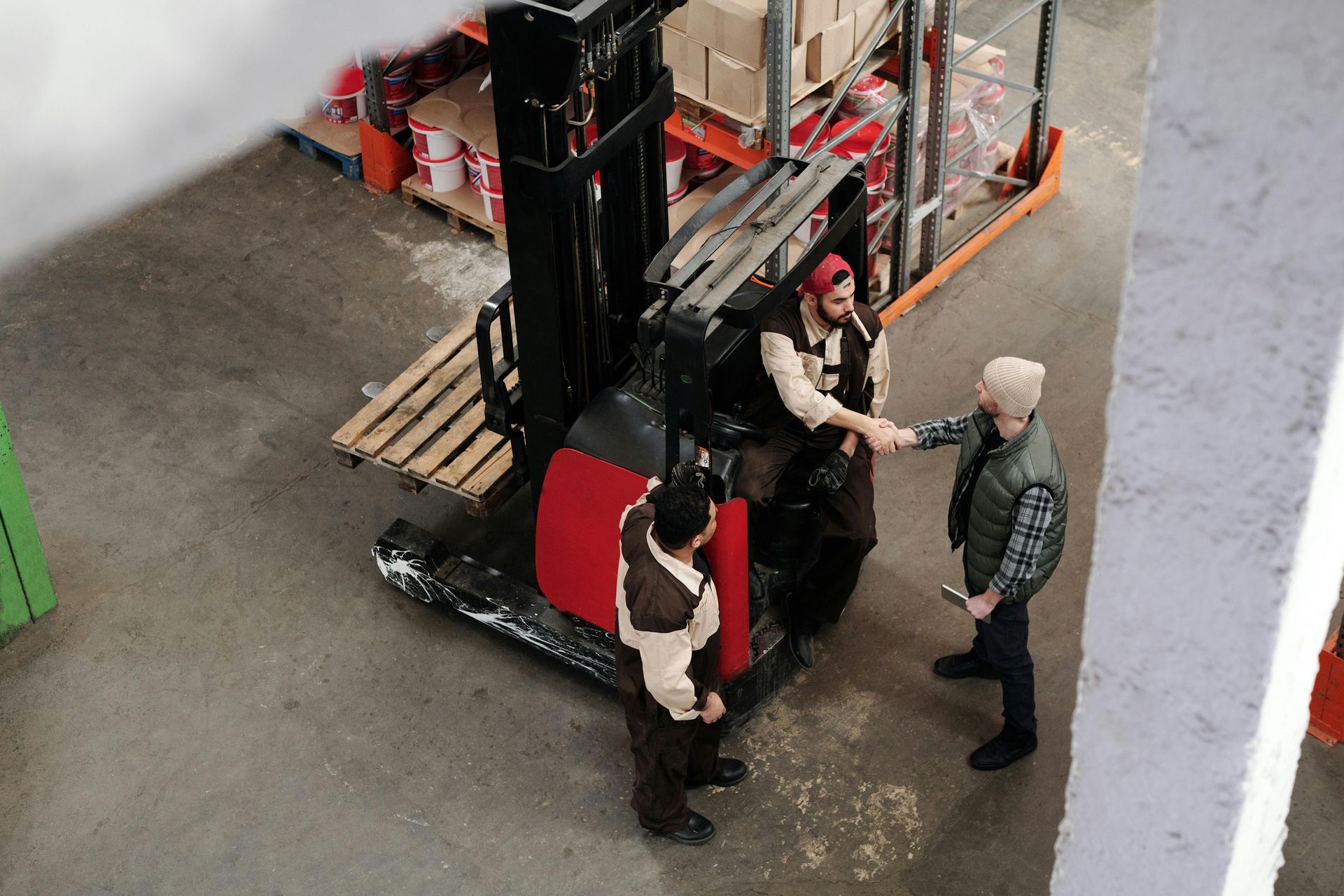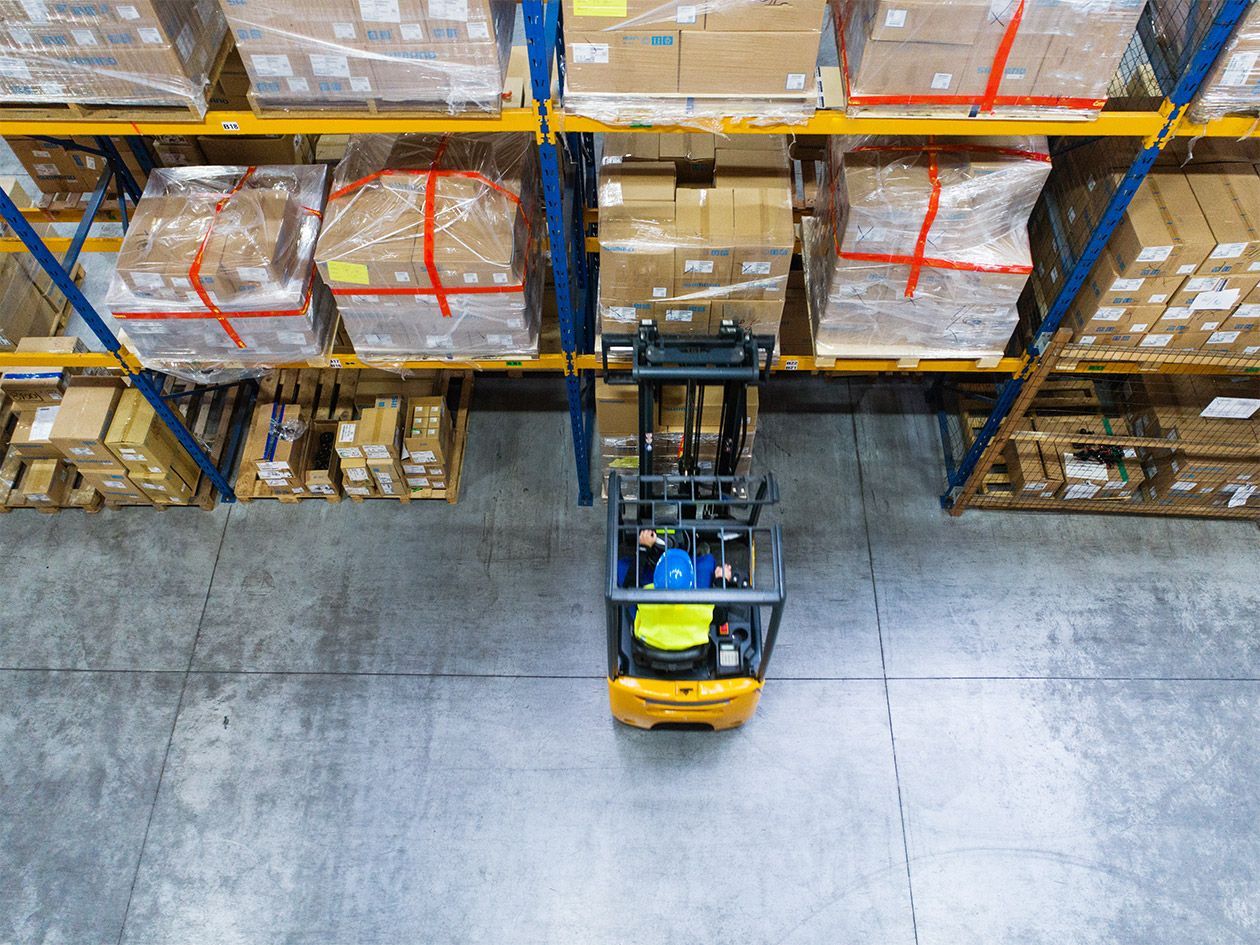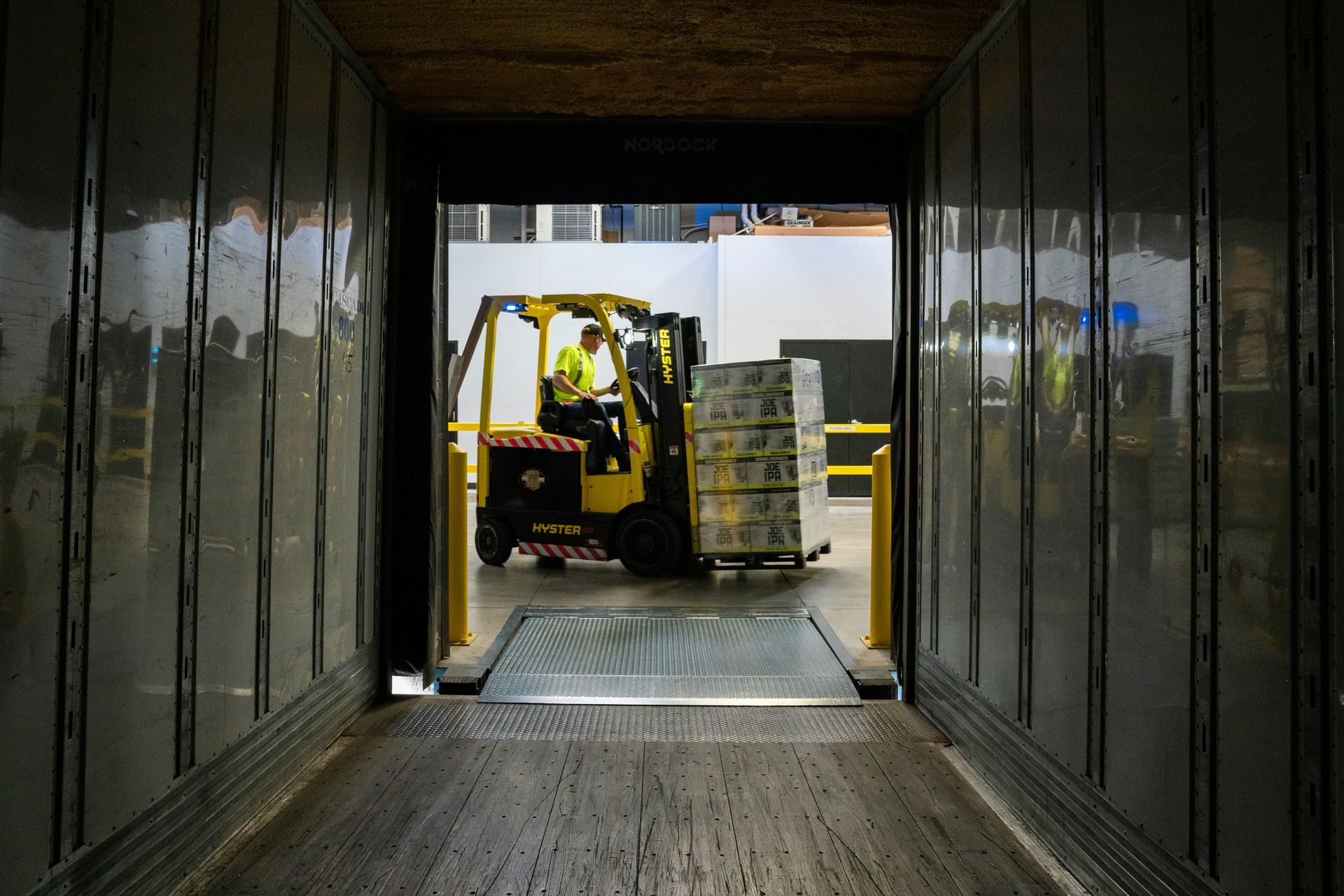Weather-Proofing Your Shipping Strategies with the Right Warehouse Equipment
The logistics industry faces constant challenges, but few are as unpredictable and potentially disruptive as the weather.
Adverse weather conditions, from torrential rain and snowstorms to extreme heat and high winds, can delay shipments, damage goods, and lead to significant financial losses.
For companies that rely on shipping, weather-proofing strategies are essential to maintaining operations, ensuring customer satisfaction, and safeguarding their bottom line.
Businesses that sell and rent forklifts and other warehouse equipment are crucial in helping companies develop weather-resistant solutions.
Here's how investing in the right tools and strategies can help keep your shipping processes efficient and secure, regardless of the forecast.
The Role Weather Plays in Shipping Challenges
Poor weather impacts shipping in multiple ways, from delayed transportation schedules to damaged goods caused by inadequate protection.
Rain and snow can create slippery conditions in loading areas, while extreme temperatures can affect the integrity of perishable or sensitive items. High winds may damage equipment or blow unsecured materials away, leading to safety concerns and operational delays.
These risks necessitate proactive planning and reliable equipment to handle shipments safely and efficiently, regardless of environmental conditions. Businesses prioritizing weather-proofing their shipping strategies can reduce downtime, improve efficiency, and build resilience against unexpected weather events.
Select and Outfit Weather-Resistant Forklifts
Forklifts are the backbone of material handling operations, and choosing weather-resistant models and accessories is crucial for companies operating in challenging climates.
All-Weather Tires: Equip forklifts with specialized tires designed to provide traction on wet, icy, or uneven surfaces. Pneumatic tires are ideal for outdoor use, while solid tires work well in areas prone to punctures from debris.
Enclosed Cabins: For outdoor operations in rain, snow, or extreme temperatures, forklifts with enclosed cabs can protect operators and maintain productivity.
Heated Components: In colder climates, forklifts with heated cabs and hydraulic fluid systems prevent freezing and ensure smooth operation.
Corrosion-Resistant Materials: Forklifts exposed to rain or salty coastal air should be constructed with corrosion-resistant materials or have protective coatings to extend their lifespan.
Weather-Proof Loading and Unloading Zones
The areas where goods are loaded and unloaded are particularly vulnerable to weather disruptions. Companies should invest in equipment and infrastructure designed to withstand the elements to ensure smooth operations.
Canopies and Shelters: Installing covered loading docks or portable canopies will help shield goods and workers from rain, snow, and intense sunlight.
Dock Seals and Shelters: These barriers close the gaps between trailers and docks, preventing wind, rain, and snow from entering the loading area.
Non-Slip Surfaces: Equip loading zones with non-slip mats or textured flooring to reduce the risk of accidents in wet conditions.
Forklift Attachments: Use weather-proof attachments like clamps or protective covers to secure and shield goods during handling.
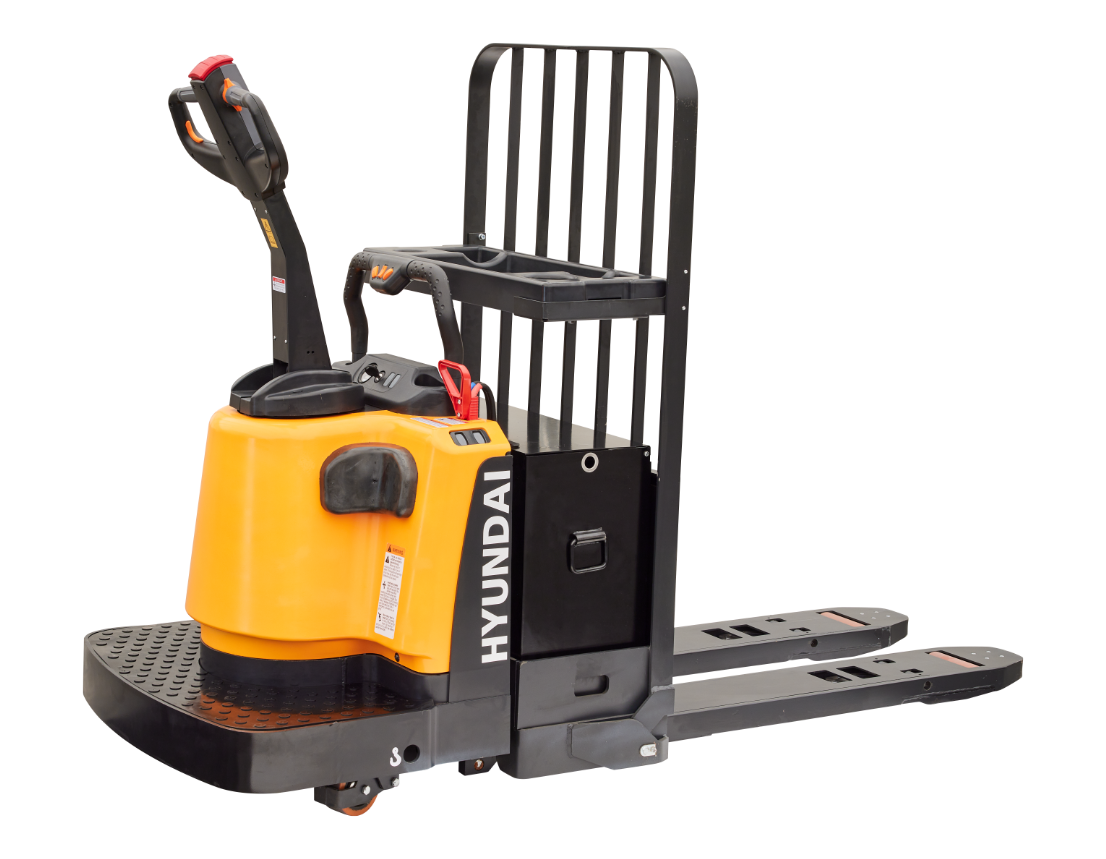
Efficient Use of Pallet Jacks and Lift Equipment
Pallet jacks and lift equipment are critical in weather-proofing shipping strategies.
Electric pallet jacks, for example, are ideal for indoor operations, while manual pallet jacks work well for quick tasks in areas prone to moisture.
To enhance efficiency during inclement weather:
- Store pallet jacks in dry areas to prevent rust and water damage.
- Opt for stainless steel pallet jacks in environments exposed to moisture or corrosive materials.
- Regularly inspect and maintain lift equipment to ensure peak performance despite weather-related wear and tear.
Protect Goods with Proper Storage and Handling
Protecting goods from weather damage starts with the proper storage and handling solutions. When choosing equipment, businesses should prioritize flexibility and resilience.
Shrink Wrap and Covers: Protect pallets with shrink wrap or weather-resistant covers to shield items from rain and snow during transport.
Climate-Controlled Storage: Invest in climate-controlled storage units or containers to maintain consistent conditions for temperature-sensitive goods.
Racking Systems: Use heavy-duty racking systems that withstand high winds or seismic activity, ensuring stored items remain secure.
Additionally, forklifts with precise handling capabilities reduce the risk of accidents and damage during adverse weather conditions.
Train Employees for Weather-Preparedness
While equipment is a significant factor, well-trained employees are equally crucial in weather-proofing shipping strategies.
By offering detailed and ongoing training, ensure staff members understand how to operate forklifts and other warehouse equipment safely in adverse conditions.
- Proper loading and unloading techniques during rain or snow.
- Safely navigating slippery or uneven surfaces with forklifts.
- Inspecting and maintaining equipment to prevent weather-related damage.
Equipping employees with the knowledge to adapt to weather challenges minimizes risks and maximizes operational efficiency.
Partner with Reliable Equipment Providers
One of the most effective ways to weather-proof your shipping strategy is by partnering with a trusted provider of forklifts and warehouse equipment.
Providers who offer rental options allow businesses to adapt their fleet to seasonal needs, such as adding all-weather forklifts during the winter months.
Working with an experienced supplier also ensures access to the latest models, expert advice, and maintenance services. Reliable providers help businesses stay ahead of industry trends, such as implementing green technology or automation for enhanced efficiency.
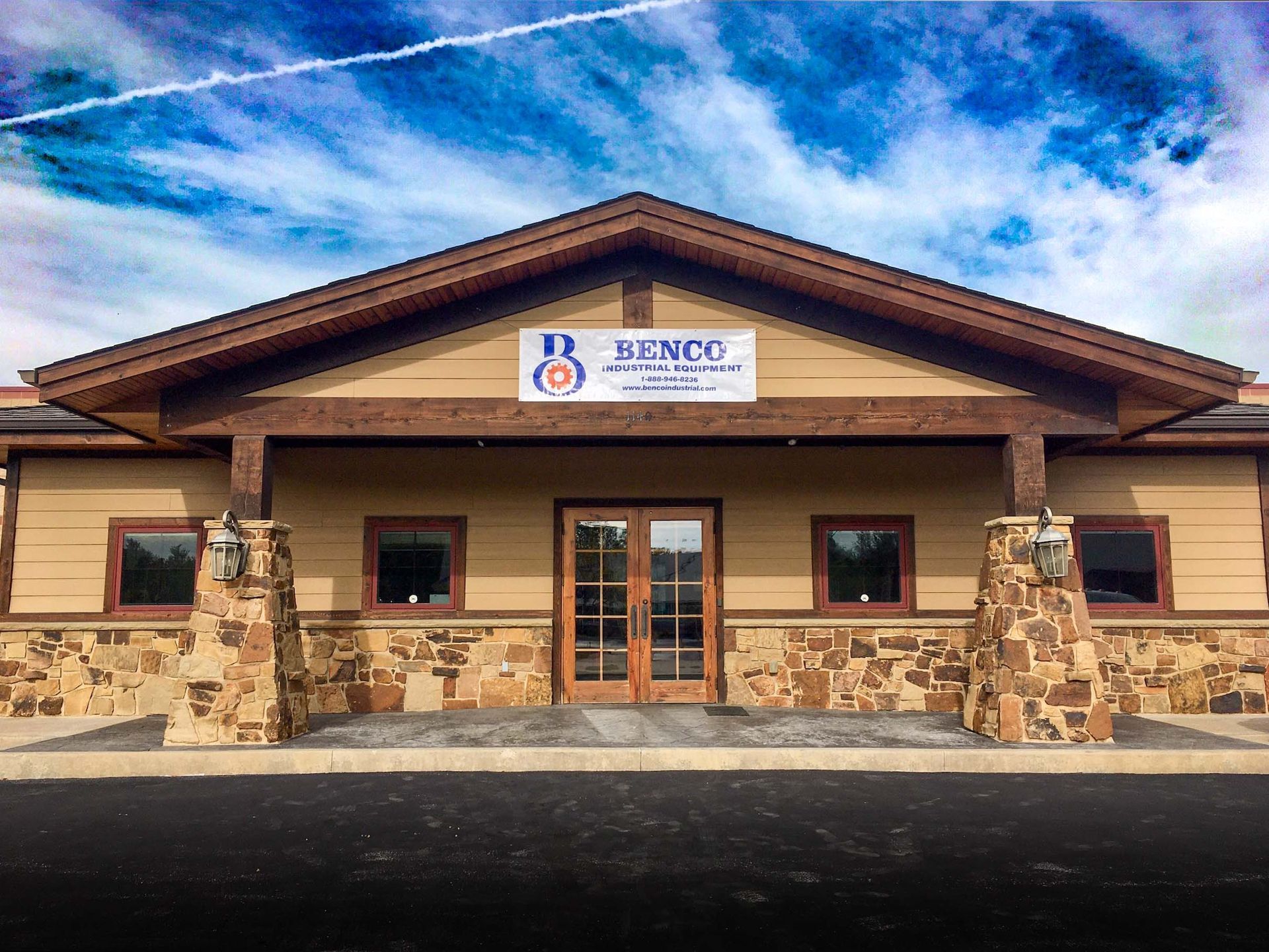
Get In Touch With Benco Industrial
Weather-proofing shipping strategies are essential for businesses looking to maintain efficiency and protect their goods under challenging conditions. By investing in the right forklifts, warehouse equipment, and infrastructure, companies can mitigate the risks posed by adverse weather while ensuring safe, timely deliveries.
Every step contributes to a resilient supply chain, from selecting weather-resistant forklifts to equipping loading zones with protective solutions. With proactive planning, thorough employee training, and reliable equipment, businesses can stay operational and competitive no matter the weather.
Our Benco Industrial Equipment team offers personalized assistance and consultation to help you find the best solutions for your warehouse needs.
Contact us today to explore our range of industrial equipment and services and take the first step toward improving your warehouse operations.


